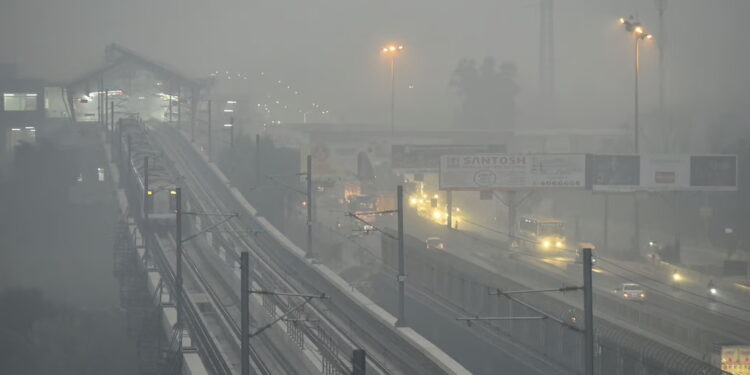Lagatar24 Desk
New Delhi: The National Green Tribunal (NGT) has issued notices to the Delhi Police Commissioner and the Special Commissioner of Traffic Management, seeking details of the measures taken to control vehicular pollution and address parking issues contributing to poor air quality in Delhi.
The NGT also stressed the need for a transparent process to apply the different stages of the anti-pollution Graded Response Action Plan (GRAP) effectively. The tribunal is reviewing the declining air quality in the National Capital Region (NCR), which has necessitated various stages of GRAP.
In an order dated October 24, NGT Chairperson Justice Prakash Shrivastava observed, “Now, the winter has started, and we find that the Air Quality Index (AQI) on October 23 in Delhi was 364, categorised as ‘very poor,’ which indicates a lapse on the part of the authorities in maintaining air quality.”
The bench, comprising Justice Arun Kumar Tyagi and expert member A Senthil Vel, referred to a report from the Commission for Air Quality Management (CAQM), which noted that Stage I of GRAP was activated when the AQI exceeded 200 for a “sufficiently long duration.” The tribunal expressed dissatisfaction over the lack of clarity regarding the average number of days required to activate Stage I and what constitutes a “sufficiently long duration.”
“We believe that objective criteria must be applied, and a transparent process should be adopted for invoking the different stages of GRAP,” the tribunal added.
The NGT highlighted that vehicular pollution is a significant contributor to Delhi’s air quality issues and noted that managing traffic, controlling parking problems, and enforcing bans on unauthorised and old vehicles is the responsibility of the Delhi Police. Consequently, the tribunal added the Delhi Police Commissioner and the Special Commissioner of Traffic Management as respondents in the case.
“Let notices be issued to the newly added respondents to file their responses by way of affidavit, disclosing the steps taken at the ground level to mitigate the contributing air pollution factors related to vehicular movements and parking,” the NGT directed.
The tribunal also instructed the Delhi government and the Municipal Corporation of Delhi (MCD) to strengthen their field staff and monitoring teams to ensure effective implementation of anti-pollution measures.
In addition, the NGT directed the Central Pollution Control Board (CPCB), Delhi government, and MCD to promote their mobile applications for monitoring pollution levels, aiming for better public awareness.
The Union Ministry of Environment, Forest, and Climate Change (MoEF&CC) informed the tribunal about the existing ambient air quality monitoring stations in the NCR and proposed new stations. However, the ministry noted that there is no new ambient air quality monitoring station planned for Delhi.
The tribunal further instructed CAQM to disclose the measures taken from January to September 2024 to prevent the decline in air quality during the winter months. The next hearing has been scheduled for November 5.







